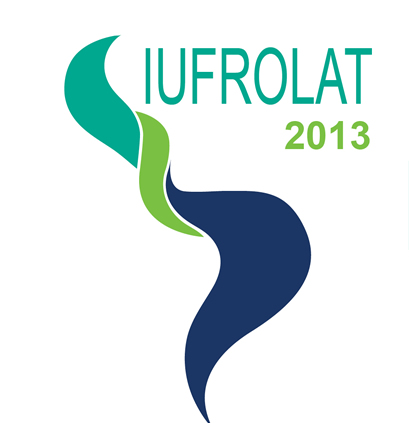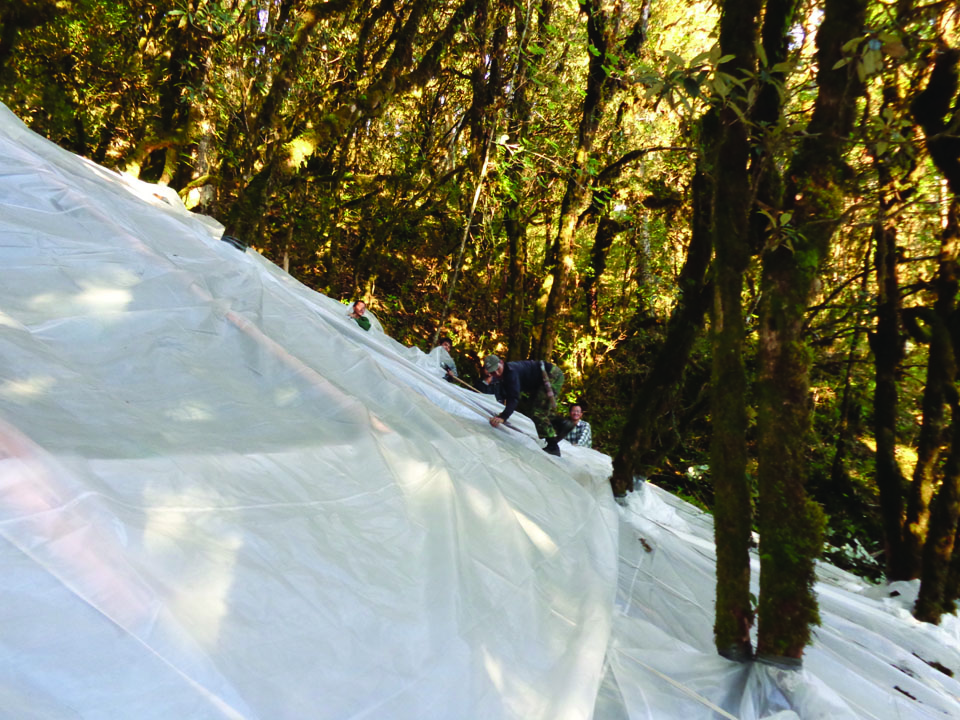Local approach is crucial to making forest and landscape restoration a success
A 3-day training workshop on science-policy interactions for forest and landscape restoration took place on 4-6 September 2015 in Durban, South Africa, prior to the World Forestry Congress. The workshop was organized by IUFRO’s Special Programme for Development of Capacities (SPDC) in collaboration with the World Resources Institute (WRI), and brought together a group of 14 early and mid-career scientists, educators and professionals from developing countries in Africa, Asia, and Latin America. http://www.iufro.org/science/special/spdc/actproj/twdurban/ Read more…
Spotlight #31 – Eschew obfuscation! Um, wait. Let me rephrase that…
Eschew obfuscation! Um, wait. Let me rephrase that…
 Disseminating forest research results beyond the research community to policy makers, decision makers, forest managers, other forest stakeholders and in some instances, to the public, is important.
Disseminating forest research results beyond the research community to policy makers, decision makers, forest managers, other forest stakeholders and in some instances, to the public, is important.
We all know that.
Those research findings can be used to contribute to the sustainable management of forests, to the health and wellbeing of forest ecosystems and, on a grand scale, to the overall health of our planet and the organisms – including humans – that exist here. (And, from a researcher’s self-interest perspective, the more people who understand the importance of the research, the more potential for continued funding.) Read more…
Bringing science to the people
How IUFRO’s Special Programme for Development of Capacities (SPDC) contributes to enhancing forest science communication within the framework of a Climate Change Adaptation Program in Bhutan.
Would you like to see your forest be wrapped up in plastic? Well, this is what Bhutanese society will witness due to a research project that aims at simulating drought, which may affect the region’s forests in the future as a result of climate change. In order to inflict drought stress on mature trees, entire research plots of considerable size have been covered with plastic roofs in about 2 m height above ground level, preventing rain water from reaching the soil and roots of trees. But would local people show understanding for such a measure and approve of it easily?
Third IUFRO Latin American Congress IUFROLAT III

12-15 June 2013
San José, Costa Rica
Congress website: http://www.web.catie.cr/iufrolat/Iufro_ing.htm
This blog will present highlights and impressions from IUFROLAT III, the Third IUFRO Latin American Congress which starts today in the city of San José, Costa Rica and will run until Saturday, 15 June 2013. The Congress has been organized together with CATIE, the Agricultural Research and Higher Education Center, RIABM, the Iberoamerican Model Forest Network, FAO and several IUFRO members in the region. The overall theme of the Congress is “Forests, competitiveness and sustainable landscapes” and one of its major goals is to place relevant science-based information at the disposal of decision makers.
With up to 600 expected participants, IUFROLAT III has exceeded all expectations and has outnumbered previous regional Congresses by far. This clearly shows the extraordinary interest and need of scientists in Latin America to share and exchange information on the issues that are high on the agenda in the region concerning forest and landscape management, ecosystem services and climate change adaptation and mitigation, among others. The Congress languages being Spanish, English and Portuguese will further contribute to ensuring an excellent exchange of knowledge and experience.
IUFRO is placing particular emphasis on strengthening forest-related research in regions. Regional congresses are aimed to promote quality research as well as maintain the momentum of IUFRO activities in the five-year periods between IUFRO World Congresses in a certain region.
The great success of previous regional congresses, especially the First African Regional Congress held in Nairobi, Kenya, almost exactly one year ago, have confirmed the great need for IUFRO’s focusing on defined geographic areas. The first two IUFRO Latin American Congresses in Valdivia (1998) and La Serena (2006), both organized by INFOR, the Forest Research Institute of Chile, and the European Regional Congress that took place in Warsaw, Poland (2007), are further excellent examples.
IUFRO Board Meeting
Right before the Congress, the IUFRO Board (http://www.iufro.org/who-is-who/board/) held its annual meeting and important issues concerning the future of the network, its leadership, venues of world congresses and strategic guidelines are on the agenda. The decisions made at this Board meeting will pave the way for the next Board term starting after the next IUFRO World Congress in October 2014 in Salt Lake City, USA (http://www.iufro2014.com/).
IUFRO-SPDC Pre-Congress Training Workshop: Communicating Forest Research – Making Science work for Policy and Management
San José, Costa Rica, June 9-11
Prior to the Congress, IUFRO’s Special Programme for Development of Capacities (IUFRO-SPDC), formerly known as the Special Programme for Developing Countries in coordination with CATIE, carried out a training workshop for early-career scientists from the Latin American Region to strengthen capacities and skills in forest science communication. The workshop brought together 16 participants from 11 regional countries.
One attendant, Eduardo Lopez Rosse from CIDES-UMSA and UMSS-Trópico, Bolivia, expressed his thoughts on the workshop. “The workshop was a great experience… I learned how to transmit scientific information outside the academic arena to other stakeholders, municipalities in my country, as well as to the general public.”
Another scientist, Mariana Moya, Extension Advisor at the Facultad de Agronomía, Universidad de Buenos Aires of Argentina had this to say, “We have a lot of people in Latin America working intensively with small farmers, with aboriginal communities, and we must communicate with governments, private companies, and different kinds of social organizations. It is helpful to me to see experiences from people who work in Brazil, Chile, Panama, and how they are communicating in their extension programs.”
The workshop which concluded today was an excellent demonstration of the SPDC’ capacity development efforts in building strengthened communication of forest research in a region.
It is important to note that IUFRO-SPDC through generous contributions by the Governments of Finland, Germany and the United States of America as well as the Center for International Forestry Research supports a total of 66 scientists in the framework of the Scientist Assistance Programme to attend the IUFROLAT Congress, bringing scientists who otherwise may not have had the opportunity to come to such an event.
Information about the Training Courses and IUFRO-SPDC:
http://www.iufro.org/science/special/spdc/

